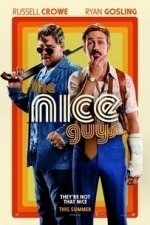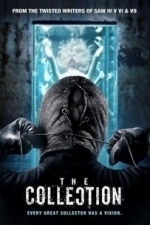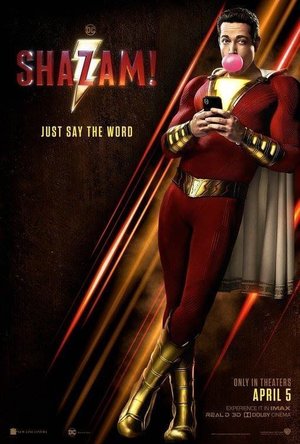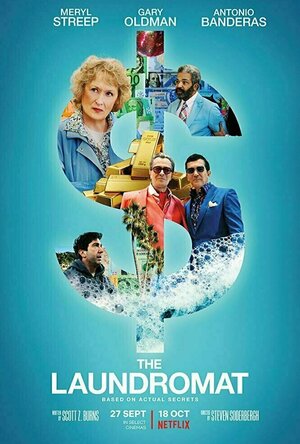Search
Search results
Neon's Nerd Nexus (360 KP) rated Weathering with You (2019) in Movies
Feb 1, 2020 (Updated Feb 1, 2020)
Change The World
Weathering With You is such an original and blissfully delightful tale that it successfully draws you in and immerses you into its breathtakingly realistic world the moment you enter it. I think we can all safely say that when Makoto Shinkai makes a movie he turns heads because he's without a doubt up there with Studio Ghibli in regards to quality, imagination, beauty and magic. Whats great about Weathering with you is just how grounded in reality it is and as we meet our lead character we get to see/feel just how tuff life can be for a young adult trying to live/survive in the world especially with no help, guidence or someone to look up to. This really helps form an instant connection to him as a character and while some of his actions maybe considered bad you sympathies and relate to him on a personal level just the same. As the film plays out a more spiritual/fantasy like plot starts to unfold and at first I did struggle to grasp what the film was actually trying to say over all but this does become clear the further in you get. To me its a story about pressure/burdens we ourselves and the world put on our heads which eventually/inevitably will lead to anxiety, emotions running wild, stress, depression and in some cases giving a person such a warped negative outlook on life that they may be lead to believe that their existence is what is causing the pain and misery of everyone else. Surprisingly climate change is a big theme here too and this has become a huge stress in its self weighing down on not only us but on our characters heads equally. However the film does have a lovely way of looking at this issue towards the end which helps manifest a more positive way of dealing with/coming to terms with this huge problem helping to take some of that pressure off us and giving us peace of mind. As you can imagine all this does get extremely heavy at times but it gives what moments of happiness we get such power and weight that by the time they appear I guarantee you will be struggling to contain your emotions as they try to escape from you. With clear influences from the likes of Spirited Away Weathering with you is animated flawlessly and is so beautiful to watch that it even makes simple actions such as preparing food absolutely captivating. Huge cassical scores gracefully a company the striking visualls too but every so often these pices distort, fracture and skip giving them a more modern/slightly futuristic feel to them which i was really impressed by. Makoto Shinkai has done it again and its nice to see his films are getting the attention they deserve with every seat filled in our showing. Honestly go see this film it really is a perfect example of animation at its absolute finest.
Gareth von Kallenbach (980 KP) rated The Nice Guys (2016) in Movies
Aug 6, 2019
This is how it’s supposed to be done. Though it’s not the most original flick to grace the silver screen, Shane Black’s follow-up to his instant cult classic Kiss Kiss Bang Bang has everything you could want in an action/comedy romp. A solid dynamic between its two charming yet flawed leads, a strong plot that has enough twists and turns to keep you thrilled but not lost, and plenty of quotably razor-sharp dialogue. Imagine the Lethal Weapon type meets a less obtuse Inherent Vice. Besides the return of Jason Bourne in July, it will undoubtedly be the most entertaining thing you’ll see in another summer season of mediocrity. Is anybody really that interested in a ninth X-Men film?
Russell Crowe is the muscle-for-hire opposite Ryan Gosling as the P.I. referred to by his daughter as “the worst detective in the world”. They are thrust together by circumstance and, after a couple of amusing altercations, come to find out they are both involved in a larger case of conspiracy and cover-up as they race to find the girl at the center of it all. Crowe and Gosling make a winning team with chemistry in spades and, though the dialogue they’re given may not feel as fresh as what Val Kilmer and Robert Downey Jr. had to work with in Kiss Kiss Bang Bang; they still pull it off marvelously. Between Gosling’s unfortunate directorial debut, Lost River, and Crowe’s string of misfires since 2010’s Robin Hood, these were the type of roles their fading stars were in dire need of and they both certainly look at home in a 70’s-era Hollywood detective story. For Gosling especially, this is probably the most likable he’s ever been. Well done also to the casting department for finding Angourie Rice. As Gosling’s daughter, she’s does an admirably fine job of playing a girl who can stand up to an incredibly hostile world and give some back. Here’s hoping she’s got a decent agent that will keep her in rich, multi-dimensional characters.
Shane Black, already having proved that he knows his way around a screenplay or two, is firmly coming into his own as a director (though the Christmas thing has got to stop), and I’ll be eagerly anticipating his next foray behind the camera. It’s also another excellent job from Warner’s marketing team, with a trailer that gave just enough of the one-liners and snippets of action without spoiling too many of the fun and twisty plot points. The action beats and moments of violence themselves, due to a tightly-structured script, feel earned and well-placed. Not once did I get that overwhelming feeling of action fatigue I’ve been experiencing so much in film lately (I’m looking at you, Marvel). The Nice Guys is all-around great filmmaking and one I can’t wait to revisit. I wouldn’t doubt it’ll be a day-one buy for me when it hits the home video market.
Russell Crowe is the muscle-for-hire opposite Ryan Gosling as the P.I. referred to by his daughter as “the worst detective in the world”. They are thrust together by circumstance and, after a couple of amusing altercations, come to find out they are both involved in a larger case of conspiracy and cover-up as they race to find the girl at the center of it all. Crowe and Gosling make a winning team with chemistry in spades and, though the dialogue they’re given may not feel as fresh as what Val Kilmer and Robert Downey Jr. had to work with in Kiss Kiss Bang Bang; they still pull it off marvelously. Between Gosling’s unfortunate directorial debut, Lost River, and Crowe’s string of misfires since 2010’s Robin Hood, these were the type of roles their fading stars were in dire need of and they both certainly look at home in a 70’s-era Hollywood detective story. For Gosling especially, this is probably the most likable he’s ever been. Well done also to the casting department for finding Angourie Rice. As Gosling’s daughter, she’s does an admirably fine job of playing a girl who can stand up to an incredibly hostile world and give some back. Here’s hoping she’s got a decent agent that will keep her in rich, multi-dimensional characters.
Shane Black, already having proved that he knows his way around a screenplay or two, is firmly coming into his own as a director (though the Christmas thing has got to stop), and I’ll be eagerly anticipating his next foray behind the camera. It’s also another excellent job from Warner’s marketing team, with a trailer that gave just enough of the one-liners and snippets of action without spoiling too many of the fun and twisty plot points. The action beats and moments of violence themselves, due to a tightly-structured script, feel earned and well-placed. Not once did I get that overwhelming feeling of action fatigue I’ve been experiencing so much in film lately (I’m looking at you, Marvel). The Nice Guys is all-around great filmmaking and one I can’t wait to revisit. I wouldn’t doubt it’ll be a day-one buy for me when it hits the home video market.
Gareth von Kallenbach (980 KP) rated The Collection (2012) in Movies
Aug 7, 2019
From the creative yet somewhat disturbed minds of Marcus Dunstan and Patrick Melton (Saw IV, V VI and 3D). The Collection is a suspense horror that will keep you guessing and on the edge of your seats. The film is based on an insane masked killer who “collects” bodies after his victims undergo a series of macabre torture and death. Staring Josh Stewart (The Dark Knight Rises) who portrays a man named Arkin who has been tortured himself. Arkin is forced to help find Elena who is portrayed by Emma Fitzpatrick (The Social Network) who decided to attend an underground rave with her friends and was the only one who survived a brutal bloody massacre on the entire club. Christopher McDonald (“Boardwalk Empire”) is Elena’s father and is extremely wealthy and hires a team to help locate Elena and bring down this masked crazed killer. Arkin is forced to help the team by going back to the very place he had once escaped to help find Elena. The team is lead into a maze of disturbing rooms and halls booby-trapped with all sorts of insane killing machines. Will Elena and the team be able to return safely to their families?
Fans of the Saw films will find that The Collection is a spitting image of its sister movie with the same gruesome killer and horrific killing machines. Granted that the ideas may be similar the stories are quite different and executed very well. The film is very bloody yet heroic at the same time and though some scenes and dialog proved to be quite ridiculous as generated by the audience’s laughter, in the end was somewhat of an entertaining thrill ride. The film is not your run of the mill slasher film where the killer is after a young group of kids who are being chased in a forest out in the middle of nowhere. The victims in this film are all types of people who are wanted for the killers collection of gruesome horrors.
You do not need to see the previous film in the series “The Collector” to enjoy this film but the background knowledge does help with the mythos of the character.
Though the film is somewhat entertaining with all its gruesomeness, I seem to be more of a fan of the Saw franchise. Even with the same sort of plot of mice all headed for the cheese just with a bunch of death traps in the way. It just seemed as though there wasn’t really a back story and it did not expand upon the previous film that much. Granted one really is not needed it may have helped with the flow of the film. The Collection is recommended but is not a must see film and does not add to the excitement of movies to come in the coming years.
Fans of the Saw films will find that The Collection is a spitting image of its sister movie with the same gruesome killer and horrific killing machines. Granted that the ideas may be similar the stories are quite different and executed very well. The film is very bloody yet heroic at the same time and though some scenes and dialog proved to be quite ridiculous as generated by the audience’s laughter, in the end was somewhat of an entertaining thrill ride. The film is not your run of the mill slasher film where the killer is after a young group of kids who are being chased in a forest out in the middle of nowhere. The victims in this film are all types of people who are wanted for the killers collection of gruesome horrors.
You do not need to see the previous film in the series “The Collector” to enjoy this film but the background knowledge does help with the mythos of the character.
Though the film is somewhat entertaining with all its gruesomeness, I seem to be more of a fan of the Saw franchise. Even with the same sort of plot of mice all headed for the cheese just with a bunch of death traps in the way. It just seemed as though there wasn’t really a back story and it did not expand upon the previous film that much. Granted one really is not needed it may have helped with the flow of the film. The Collection is recommended but is not a must see film and does not add to the excitement of movies to come in the coming years.

Catch - Online Shopping Deals
Shopping and Lifestyle
App
Catch is Australia's number one online shopping destination for discount prices on everything you...

comiXology - Comics & Manga
Book, Comics and Entertainment
App
Are you ready to explore over 100,000 digital comics, graphic novels and manga from Marvel, DC,...
Charlie Cobra Reviews (1840 KP) rated The Lion King (2019) in Movies
Jul 7, 2020
Return of The King
The Lion King is a 2019 computer-animated musical movie directed and produced by Jon Favreau. It was written by Jeff Nathanson, and produced by Fairview Entertainment and Walt Disney Pictures and distributed by Walt Disney Studios Motion Pictures. The film stars Donald Glover, Seth Rogen, Chiwetel Ejiofor, Beyonce and James Earl Jones.
King Mufasa (James Earl Jones) and Queen Sarabi rule over the animal kingdom with their pride of lions from Pride Rock, in the African Pride Lands. Things change with the birth of their son, Simba, the new Prince. Mufasa's younger brother, and former heir to the throne, Scar, covets the throne and plots to eliminate Mufasa and Simba, so he may become king. The battle for Pride Rock is filled with betrayal, tragedy and drama and circumstances are forever changed after the events of the stampede.
This movie was really good, but of course it was. The original Lion King was one of Disney's best animated films to date. There was a lot of build up to the release of this movie, with fans every anticipating when they could finally see this story on the big screen again. Jon Favreau did not disappoint, but there was a lot of negativity and bad review scores when it first released. I think the big problem was that in all the previews/trailers leading up to the movie coming out showed how realistic the animals looked and how they were able to recreate iconic scenes in stunning state of the art CGI, but they never showed the animals talking or singing. This for me made it difficult to get fully immersed in the film when the very realistic animals began talking and singing, but eventually it went away or I got used to it a couple minutes into the movie. Also they changed very little in this remake and it was almost literally a shot for shot or scene for scene recreation of the original Lion King, which I think bothered the critics. I personally liked little changes they made that I felt made the movie just a little bit better, like the dialogue between Mufasa's and Scar implying Mufasa's gave him the scar, Zimbabwe catching up with Nala for the journey back to Pride Rock, and Nala leading the female lions in the fight against the hyenas. I also thought it was cool how they made it more clear that one of the hyenas was the leader and it was the female and the scene where Scar makes the deal with them. Overall though I feel like they could have shown more emotion in the animals if they had chosen a style that was so detailed to look so realistic. I give this movie a 7/10. It is worth watching for nostalgia and to see it in theaters is a treat, especially when getting children or younger family members to see it for the first time, but the original is still the better film.
King Mufasa (James Earl Jones) and Queen Sarabi rule over the animal kingdom with their pride of lions from Pride Rock, in the African Pride Lands. Things change with the birth of their son, Simba, the new Prince. Mufasa's younger brother, and former heir to the throne, Scar, covets the throne and plots to eliminate Mufasa and Simba, so he may become king. The battle for Pride Rock is filled with betrayal, tragedy and drama and circumstances are forever changed after the events of the stampede.
This movie was really good, but of course it was. The original Lion King was one of Disney's best animated films to date. There was a lot of build up to the release of this movie, with fans every anticipating when they could finally see this story on the big screen again. Jon Favreau did not disappoint, but there was a lot of negativity and bad review scores when it first released. I think the big problem was that in all the previews/trailers leading up to the movie coming out showed how realistic the animals looked and how they were able to recreate iconic scenes in stunning state of the art CGI, but they never showed the animals talking or singing. This for me made it difficult to get fully immersed in the film when the very realistic animals began talking and singing, but eventually it went away or I got used to it a couple minutes into the movie. Also they changed very little in this remake and it was almost literally a shot for shot or scene for scene recreation of the original Lion King, which I think bothered the critics. I personally liked little changes they made that I felt made the movie just a little bit better, like the dialogue between Mufasa's and Scar implying Mufasa's gave him the scar, Zimbabwe catching up with Nala for the journey back to Pride Rock, and Nala leading the female lions in the fight against the hyenas. I also thought it was cool how they made it more clear that one of the hyenas was the leader and it was the female and the scene where Scar makes the deal with them. Overall though I feel like they could have shown more emotion in the animals if they had chosen a style that was so detailed to look so realistic. I give this movie a 7/10. It is worth watching for nostalgia and to see it in theaters is a treat, especially when getting children or younger family members to see it for the first time, but the original is still the better film.
Charlie Cobra Reviews (1840 KP) rated Shazam! (2019) in Movies
Jul 7, 2020
Fun Filled Family Event
Shazam! is a 2019 superhero movie based on the DC Comics character. Produced by New Line Cinema and distributed by Warner Bros. Pictures, it is the first live-action film version of the character since 1941. The film is also directed by David F. Sandberg from a screenplay by Henry Gayden and story by Henry Hayden and Darren Lemke. Starring Zachary Levi, Asher Angel, Mark Strong, Jack Dylan Grazer, and Djimon Hounsou.
In 1974 Upstate New York, the ancient wizard Shazam magically transports Thaddeus Sivana (Ethan Pugiotto) to the Rock of Eternity, a hidden magical temple. Shazam, the last of the Council of Seven Wizards, explains that he has been searching for centuries for a champion who is "pure of heart". Released upon the ancient world, and now trapped in statues within the Rock, the Seven Deadly Sins tempt Thaddeus with promises of power. Banished back to Earth as unworthy of being a champion for succumbing to the sins, Thaddeus causes an accident while traveling with his family which leaves his father severely injured. Searching for his birth mother in present day Philadelphia, foster kid Billy Batson (Angel Asher) runs a foul of the law and is placed in a group home with 5 other foster kids run by Victor (Cooper Andrews) and Rosa Vasquez (Marta Milans). Freddy Freeman (Jack Dylan Frazer) is one of the five foster kids, an amateur superhero expert, and his new roommate. Now an adult Thaddeus (Mark Strong) discovers how to return to the Rock and acquire the power he was denied as a child.
This movie was a ton of fun. I don't think I've laughed out loud in a comic book movie this much since Ant-Man. This movie was really good. It had its silliness in certain parts but still did well in building tension and having its serious parts. Also it was well done on how the story played on your emotions for a lot of the different characters. I love the way the foster family and siblings came into play throughout the film. The special effects were really good, especially the monsters and even though you know Zachary Levi is in a muscle suit (which i initially disliked) it didn't even matter. The plot was good although some of it seemed recycled which bothered me slightly. The dialogue was good, some of it silly, which seemed appropriate for the character being younger than he looks when he is Shazam. But I didn't have much to complain about. I never saw one of the major twists coming at the end, so that really surprised me. If you're looking for a fun movie to watch, with family or friends or a superhero movie that will also make you laugh, Shazam is the one to choose. I give this movie a 8/10.
In 1974 Upstate New York, the ancient wizard Shazam magically transports Thaddeus Sivana (Ethan Pugiotto) to the Rock of Eternity, a hidden magical temple. Shazam, the last of the Council of Seven Wizards, explains that he has been searching for centuries for a champion who is "pure of heart". Released upon the ancient world, and now trapped in statues within the Rock, the Seven Deadly Sins tempt Thaddeus with promises of power. Banished back to Earth as unworthy of being a champion for succumbing to the sins, Thaddeus causes an accident while traveling with his family which leaves his father severely injured. Searching for his birth mother in present day Philadelphia, foster kid Billy Batson (Angel Asher) runs a foul of the law and is placed in a group home with 5 other foster kids run by Victor (Cooper Andrews) and Rosa Vasquez (Marta Milans). Freddy Freeman (Jack Dylan Frazer) is one of the five foster kids, an amateur superhero expert, and his new roommate. Now an adult Thaddeus (Mark Strong) discovers how to return to the Rock and acquire the power he was denied as a child.
This movie was a ton of fun. I don't think I've laughed out loud in a comic book movie this much since Ant-Man. This movie was really good. It had its silliness in certain parts but still did well in building tension and having its serious parts. Also it was well done on how the story played on your emotions for a lot of the different characters. I love the way the foster family and siblings came into play throughout the film. The special effects were really good, especially the monsters and even though you know Zachary Levi is in a muscle suit (which i initially disliked) it didn't even matter. The plot was good although some of it seemed recycled which bothered me slightly. The dialogue was good, some of it silly, which seemed appropriate for the character being younger than he looks when he is Shazam. But I didn't have much to complain about. I never saw one of the major twists coming at the end, so that really surprised me. If you're looking for a fun movie to watch, with family or friends or a superhero movie that will also make you laugh, Shazam is the one to choose. I give this movie a 8/10.
Bob Mann (459 KP) rated The Laundromat (2019) in Movies
May 18, 2021
Is this the dullest movie title in film history?
In "The Laundromat", Ellen Martin (Meryl Streep) loses her husband Joe (James Cromwell) in a boating accident. She expects a multi-million dollar insurance payout, but is frustrated that the insurance companies evaporate in a miasma of shell-companies and double-dealing. Her compulsive investigations lead her to two Panamanian-based double dealers: Jürgen Mossack (Gary Oldman) and Ramón Fonseca (Antonio Banderas).
Based on a true story, a hack of the company's 2.6 TB of email data led to the 2016 scandal known as "The Panama Papers": something that dragged into the headlines the alleged dodgy-dealings of many celebrities including David Cameron.
Positives:
- Meryl Steep delivers another superb performance as the grieving avenging widow.
- There's a "twist" in the final scene which I didn't see coming, and which was impressive.
Negatives:
- This is a really strange and disjointed movie. It seems to be trying to be "The Big Short", but is a significant fail. There are numerous quirky scenes, most involving Oldman and Banderas. But there is enough bat-shit crazy stuff in here to make you think that either Sonderbergh, or the writers, or both were on acid. What was with the "Dawn of Man" sequence at the start? And why the anonymisation of the 'hominids'? Lots of bonkers stuff.
- The movie is made up of a series of chapters ("Lessons"), but the connection between the lesson title and the "message" conveyed is loose at best. It's all a bit of a convoluted mess.
- The script seems to assume a school-boy level of knowledge of the subject matter. As a result, some of the explanations of Mssrs, Oldman and Banderas come across as extremely patronising 'mansplaining'.
Summary Thoughts on "The Laundromat": There's a stellar cast involved with this one, and the subject matter in the hands of an Adam McKay could have been compelling. But as it is, it's rather a disjointed mess. It's worth a watch just to see the actors at work. But that's about the long and the short of it. Watch "The Big Short" again instead.
This has been sitting on my Netflix box for a long time without a watch, and this is mostly because the title suggested something completely different (and not of great interest). (Yes, I understand in retrospect that the movie is partially concerned with money laundering!) It was only my wife suggesting we watch it that pushed it onto the list. If it had been titled something like "The Panama Papers" I would have probably watched it sooner!
(For the full graphical review, please check out One Mann's Movies review here - https://bob-the-movie-man.com/2021/05/18/the-laundromat-is-this-the-worst-title-of-any-movie-in-film-history/. Thanks.)
Based on a true story, a hack of the company's 2.6 TB of email data led to the 2016 scandal known as "The Panama Papers": something that dragged into the headlines the alleged dodgy-dealings of many celebrities including David Cameron.
Positives:
- Meryl Steep delivers another superb performance as the grieving avenging widow.
- There's a "twist" in the final scene which I didn't see coming, and which was impressive.
Negatives:
- This is a really strange and disjointed movie. It seems to be trying to be "The Big Short", but is a significant fail. There are numerous quirky scenes, most involving Oldman and Banderas. But there is enough bat-shit crazy stuff in here to make you think that either Sonderbergh, or the writers, or both were on acid. What was with the "Dawn of Man" sequence at the start? And why the anonymisation of the 'hominids'? Lots of bonkers stuff.
- The movie is made up of a series of chapters ("Lessons"), but the connection between the lesson title and the "message" conveyed is loose at best. It's all a bit of a convoluted mess.
- The script seems to assume a school-boy level of knowledge of the subject matter. As a result, some of the explanations of Mssrs, Oldman and Banderas come across as extremely patronising 'mansplaining'.
Summary Thoughts on "The Laundromat": There's a stellar cast involved with this one, and the subject matter in the hands of an Adam McKay could have been compelling. But as it is, it's rather a disjointed mess. It's worth a watch just to see the actors at work. But that's about the long and the short of it. Watch "The Big Short" again instead.
This has been sitting on my Netflix box for a long time without a watch, and this is mostly because the title suggested something completely different (and not of great interest). (Yes, I understand in retrospect that the movie is partially concerned with money laundering!) It was only my wife suggesting we watch it that pushed it onto the list. If it had been titled something like "The Panama Papers" I would have probably watched it sooner!
(For the full graphical review, please check out One Mann's Movies review here - https://bob-the-movie-man.com/2021/05/18/the-laundromat-is-this-the-worst-title-of-any-movie-in-film-history/. Thanks.)







